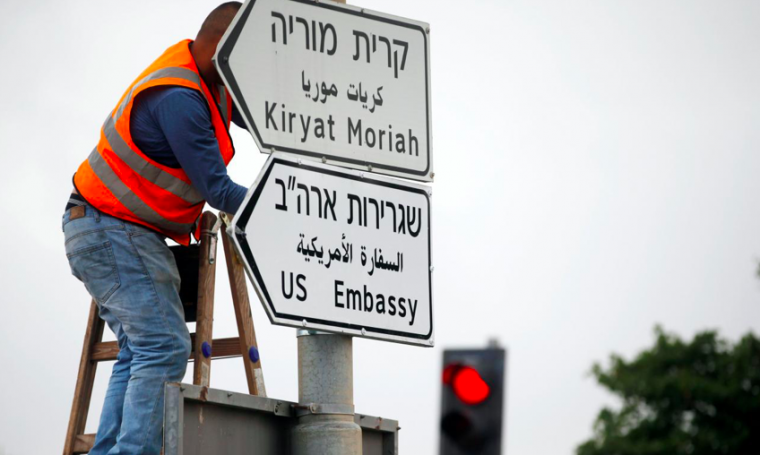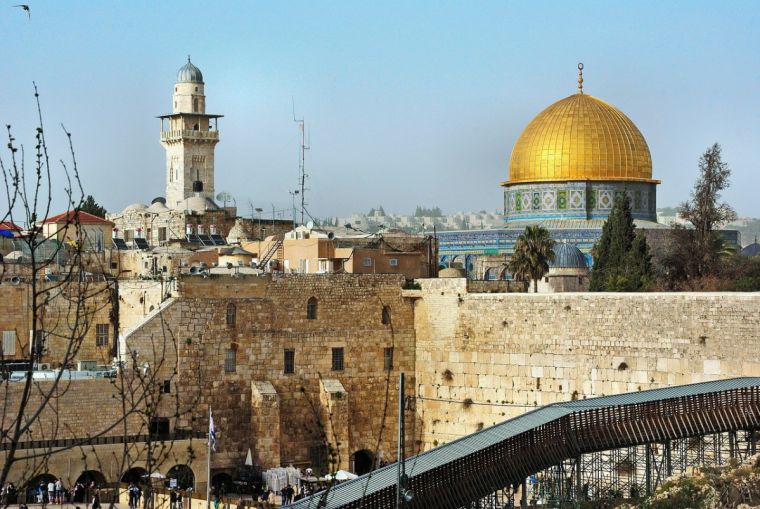Are Trump and Israel leading the Middle East into war?
It has become strangely unfashionable recently for outsiders to take a real interest in Israel and Palestine. The world's media seem only to be able to focus on one major international – or Middle Eastern – story at a time, and that has been Syria in recent weeks, and now is likely to be Iran from tonight, when Donald Trump is expected to announce the end of his predecessor Barack Obama's nuclear deal.
Yet this month marks 70 years since the creation of the State of Israel which, for Palestinians, is the anniversary of 'Nakba' day, or the day of catastrophe; next week the US embassy – so controversially moved by Trump from Tel Aviv to the disputed, shared Holy City in accordance with his unilateral and highly provocative recognition of Jerusalem as Israel's capital – will open; and there remains a major stand-off between Palestinian protesters and Israeli forces on the Gaza border. With this combination of events, the world's eyes may once again be on Israel and Palestine.

As well they might, for just as Jerusalem remains the key to unlocking the region's intractable conflict, Israel itself remains critical to the wider region's troubles and potential conflicts.
The Israeli prime minister Benjamin Netanyahu has been ramping up the rhetoric against what he calls Iran's nuclear 'lies', while the disastrous prospect of war between the two countries cannot be ruled out.
At the same time, Israel is on the West's 'side' in being opposed to the Syrian-Russian alliance, and as ever the role of Saudi Arabia must be factored in, with this dubious western 'ally', too, fiercely opposed to Iran.
In this topsy turvy Middle Eastern picture, Saudi Arabia and Israel have been seeking tentatively to develop an unlikely alliance with one another against their common enemy of Iran.
There is a distinct danger, then, that Trump and Netanyahu are leading the Middle East into a major war.
Meanwhile, the chances of peace between Israel and Palestine – of a solution to what remains the heart of the region – have been set back. As Palestinian negotiator Saeb Erekat said: 'This [embassy] move is not only illegal but will also thwart the achievement of a just and lasting peace between two sovereign and democratic states on the 1967 borders, Israel and Palestine living side by side in peace and security.'

Maybe such fears are overblown. Perhaps Trump's unconventional approach, as with Korea, could bring dividends. After all, even a stopped clock is right twice a day. And it is a fact that Trump – and his current Secretary of State Mike Pompeo – have sought to claim that peace can still be on the cards, with the latter saying: 'I...stress, as President Trump has said in December, the boundaries of Israeli sovereignty in Jerusalem remain subject to negotiations between the parties, and we remain committed to achieving a lasting and comprehensive peace that offers a brighter future for both Israel and the Palestinians.'
But to assume that such a 'comprehensive peace' can be achieved without a fair division of Jerusalem is fundamentally to misunderstand the nature of what remains, whether it's fashionable to say it or not, one of the most important regions in the world.











